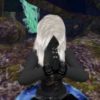For most, just the fact of being alive (I mean bottom line still breathing) has intrinsic worth. Shall we run with this assumption?
Anyone here want to die? I certainly don’t.
So I will run with this. Because we don’t want to die, certain additional activities also have intrinsic worth. Eating, sleeping, breathing, but we aren’t just bio-pumps, otherwise keeping the pump fuelled and in good repair would be enough. We have a range of sensitivity to the world around us and the life that is also in it, so we want to continue relating to this. We want to continue comprehension, continue remaining oriented. We do not want to die a brain death either.
I feel foolish, but here goes. I will keep running with it… Not only do we not want to die a brain death, we have a sense of feeling, a sense of meaning. There is no meaning in thoughts. Thoughts are abstracts, no intrinsic worth. What gives a thought meaning is how we feel about it, and we do not decide how we feel about these things. It’s a natural reaction, like drinking a small amount of petroleum will make you vomit violently. You have emotional disturbances based on what you think you perceive, and you also have emotional cravings about the stream of experience, the flowing “river of life”, though it’s more of a lake or ocean. It’s not linear. It has all sorts of conditions and currents.
But can perceptions not be “altered” by choices? Don’t we make our own worlds, to some degree at least? Perceptions are never altered by choices. Only choices are altered by perceptions. A choice for its own abstract sake, deciding something just because you choose to, has that ever changed you?
Example. I can decide to slam my foot into a wall. What will that teach me if I deliberately decided to do it?
Not to do it again. No. Accidentally slamming your foot into the wall will teach you to not do it again as you have feelings about the accident, but if you deliberately did it you learned nothing. You are changed not at all, except maybe a superficial injury to your foot.
So, the accidental foot injury teaches me more than the choice to do it? Or is it all a matter of relative perceptions? Yes. There aren’t any such things as accidents. The concept of an accident is a judgment. To believe in accidents is to claim that anything other than experience is possible. We think of learning as being something other than accidental, but learning is always accidental. Did you know how to learn math? Did you know how to learn language? Did you knowingly learn to speak? Or walk?
Practice and many mistakes. Practice is just persistence modified by the memory of experience, and persistence is motivated by that emotional craving, the desire not to die a heart death. Have you avoided dying a heart death?
I [literally] had to re-learn how to maintain balance after losing auditory nerves but persistence (choice?) in attending to that learning (not accidental) enabled me to re-program my brain for balance. The persistence was natural, unintentional. Had it been a rational decision you wouldn’t have had any reason to make it. We know how to recover just as the toddler knows how to stand back up.
So far, I have avoided dying a heart death, but both my father and my brother did not avoid it. Well, if I started running a plague cart for everyone who has died a heart death, honestly, everyone would have to report “not dead yet!” just as their family is eager to declare that they are. But a great many people are very heart sick. There is a simple remedy. Not becoming disoriented, getting caught up in so called realistic thinking. Instead, we need to ground ourselves in gratitude. I don’t mean a, “Thank you sir, can I have another” notion of accepting our pain because somehow it builds character. Though indeed it can, it can tear it down just as easily.
Yes, indeed, to that. My brother and dad were both horribly caught up in realistic thinking and it killed them. Really. Ah, understood. Yes, I have seen realistic thinking kill more people than addictive chemicals. In fact, the addictions I have seen were driven by realistic thinking.
Too much pain breaks a person. Too little creates a narcissist. Actually, narcissism is also brought on by pain, just not something people are taught to recognize as pain. To be a bit adult, narcissism is just public emotional masturbation, and is just as embarrassing as the real act would be.
Your thoughts are welcome. Be well friends.
Travis Saunders
Dragon Intuitive
~science,mysticism,spirituality~



Leave a Reply